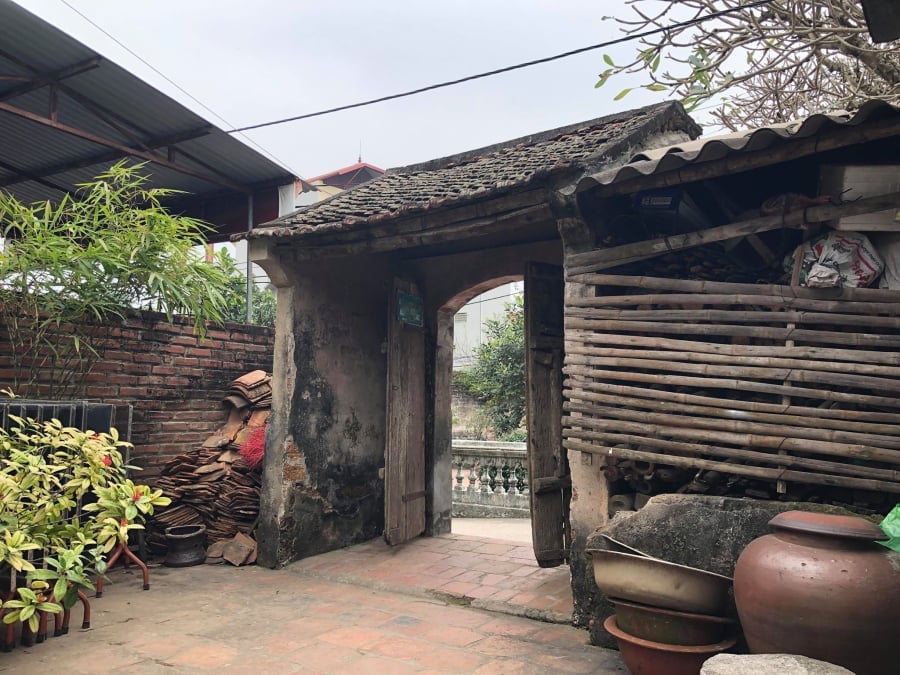1. “Don’t Fix What Isn’t Broken”: A Lesson in Patience and Timing
In Eastern philosophy, particularly in the Feng Shui traditions of Asia, the front door is not just an entrance but also a conduit of energy. It is believed that changing the direction or structure of the door can disrupt the delicate balance of energy flow, potentially bringing bad luck and financial hardship.

Why did our ancestors advise against fixing the door when one is poor?
-
Limited resources, limited options: When financially strained, the costly endeavor of fixing the door may lead to further strain and disorder, depleting already scarce resources and weakening the energy field of the home.
-
Unfavorable Feng Shui: Altering the door before the arrival of good fortune can be counterproductive, akin to changing one’s position without a solid foundation, bringing further turmoil to the family.
-
Symbolism of change: The door represents our path and direction in life. During difficult times, it’s easy to feel lost and compelled to make changes, but not all changes are beneficial. Sometimes, it’s the inner self that needs transformation, not our external circumstances.
Thus, the wisdom of our ancestors goes beyond Feng Shui; it is a lesson in life: In times of adversity, focus on stabilizing your mind and strengthening your inner power. Refrain from external changes until you have a solid foundation.
2. “Fortunes Lie with Our Ancestors”: A Reminder of Our Roots
In contrast to the previous proverb, “don’t move the grave when you’re rich” serves as a reminder to those who have achieved financial success. It emphasizes the importance of remembering one’s roots and honoring one’s ancestors, who laid the foundation for our prosperity.
Why should the wealthy refrain from moving the graves of their ancestors?
-
Ancestral graves are a source of blessings: In the principles of Yin-residence Feng Shui, the burial site of ancestors greatly influences the fate of their descendants. A peaceful and well-located grave creates a strong dragon vein, bringing prosperity to the entire family.
-
Disconnecting from spiritual energy: Our ancestors believed that descendants, regardless of their location, should regularly pay respects and tend to the graves of their forebears. Moving away from the grave site signifies neglect, disrupting the flow of ancestral blessings.
-
Wealth and humility: This proverb also serves as a moral reminder. With success, one must not forget their ancestors or the virtues of filial piety—the very foundation of humanity.
Symbolically, the “grave” represents the cultural, moral, and spiritual roots of a family. A wealthy person who forgets their ancestors and abandons tradition is like a tree without roots—their success may shine brightly for a time, but it will eventually wither and fade.
3. Fortune Favors the Virtuous: Harmony in Action

-
When you are poor, refrain from making changes that could destroy your remaining strength. Preserve your foundation, stabilize your mind, and patiently await a shift in fortune.
-
When you are rich, do not neglect your filial duties. Remember your ancestors and the virtues they embodied, for it is through their blessings that you prosper.
True fortune does not arise from hasty changes or a disconnect from our roots. Instead, it stems from harmonizing the Yin and Yang, balancing the present with the past, and aligning our outer actions with our inner selves.
Our ancestors, through their keen observations of nature and the cycles of life, imparted these simple yet profound lessons: “Don’t fix the door when you’re poor—for ill-timed changes bring instability. Don’t move the grave when you’re rich—for true fortune lies in honoring our roots.”
Reflecting on the wisdom of our ancestors, we realize that fortune is not a matter of random chance but the result of living in alignment with the universe and upholding moral virtues in our daily lives.
(Disclaimer: This article is for reference only)





































